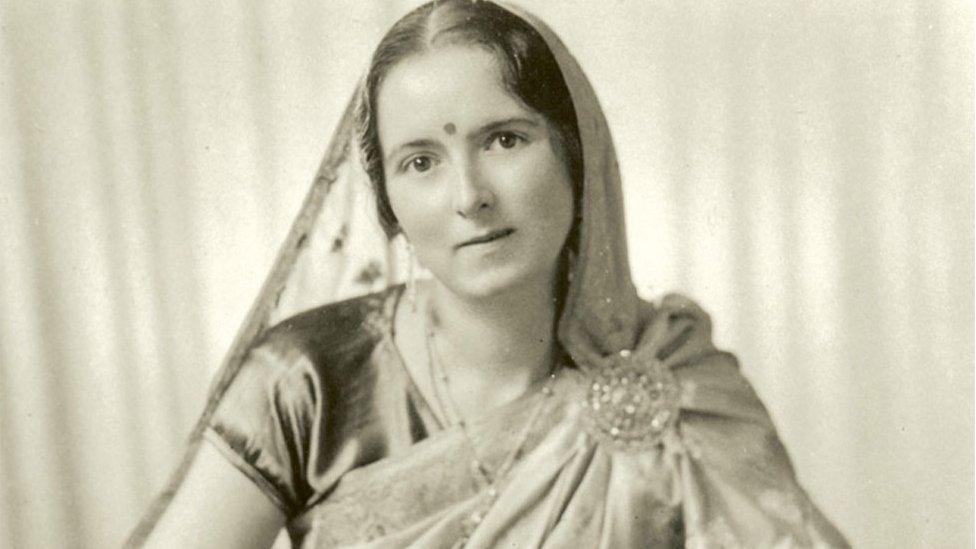Padmavati: Controversial film 'cleared by Indian censor board'
- Published
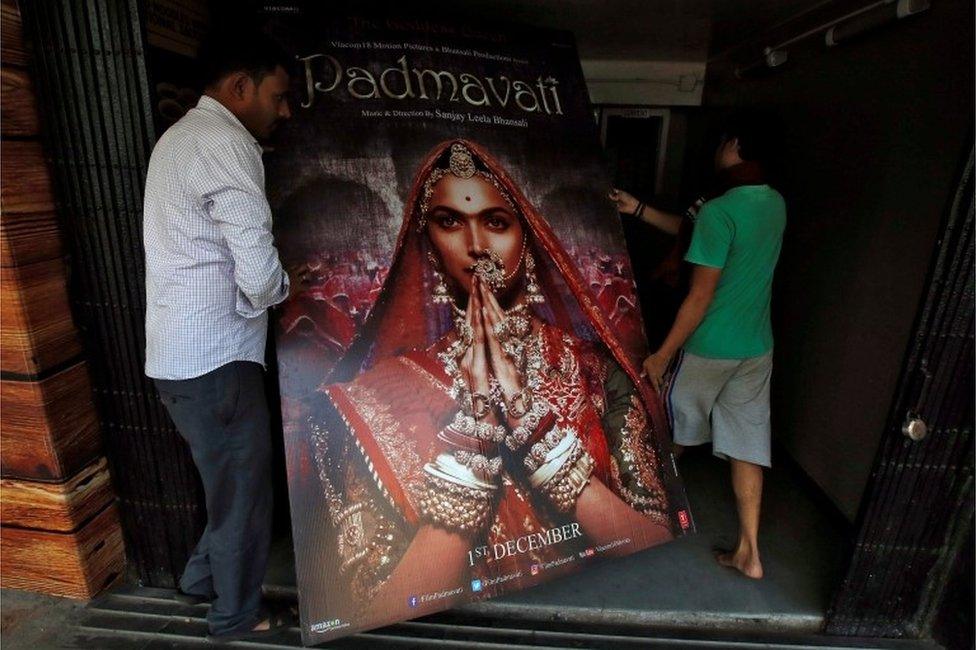
The censor board said it had not suggested cuts to the film
India's film censor board has cleared the release of controversial Bollywood film Padmavati, reports say.
The film, which tells the story of a 14th Century Hindu queen and a Muslim ruler, has sparked nationwide protests by Hindu and caste groups.
However the Central Board of Film Certification (CBFC) told local media it had not recommended any cuts.
In November, India's top court rejected an appeal by a lawyer to block the film's global release.
Padmavati tells the story of a 14th Century Hindu queen belonging to the high Rajput caste and the Muslim ruler Alauddin Khilji. Bollywood stars Deepika Padukone and Ranveer Singh play the lead roles.
Hindu groups and a Rajput caste organisation allege that the movie, directed by Sanjay Leela Bhansali, depicts an intimate romantic scene between the two characters; the producers of the film deny this.
Although a fictional character, Padmavati is deified and held as a symbol of female honour among Rajputs.
The controversy comes amid an upsurge of Hindu nationalism under Prime Minister Narendra Modi and his BJP. Muslims and members of the Dalit caste have been murdered in "beef-lynchings", the iconic Taj Mahal has been attacked over its Muslim heritage and there have been efforts to undermine Mahatma Gandhi's standing over his dream of Hindu-Muslim unity.
The censor board said it had appointed a special board to consider protesters' concerns and said these had been "discussed at length", the Press Trust of India reported.
"The film was approached with a balanced view keeping in mind both the filmmakers and the society," a statement said.
The board said it wanted a disclaimer to be shown saying that the film did not claim historical accuracy. It also called for a second disclaimer saying that the film did not promote the practice of self-immolation by widows, outlawed in the 19th Century.
It recommended changing the film's name to Padmavat, after the 16th century epic poem of the same name.
However CBFC chairman Prasoon Joshi told NDTV that no cuts had been suggested for the film, external.
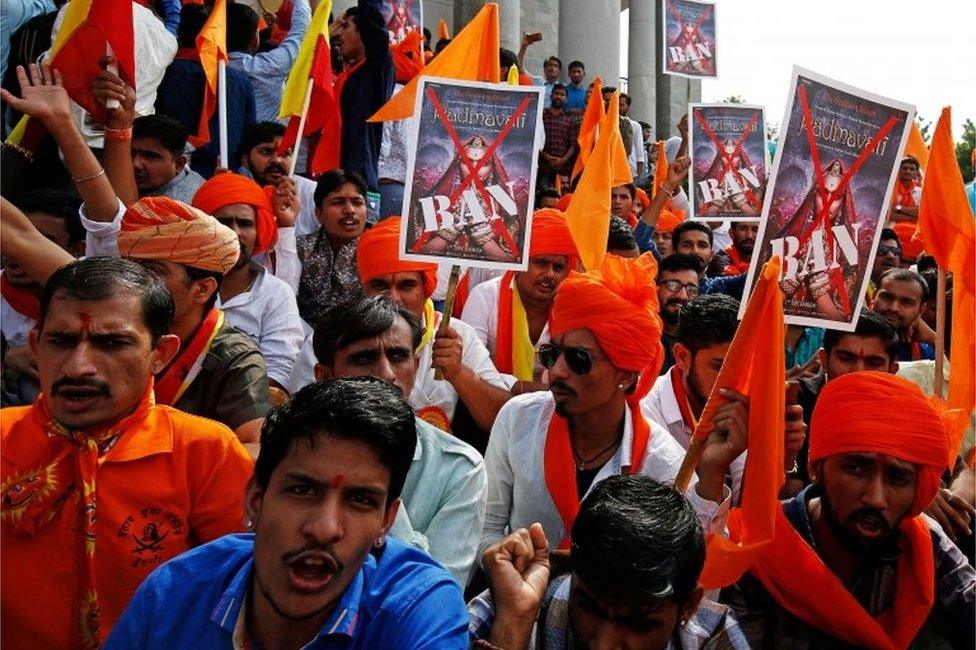
There have been countrywide protests against the film
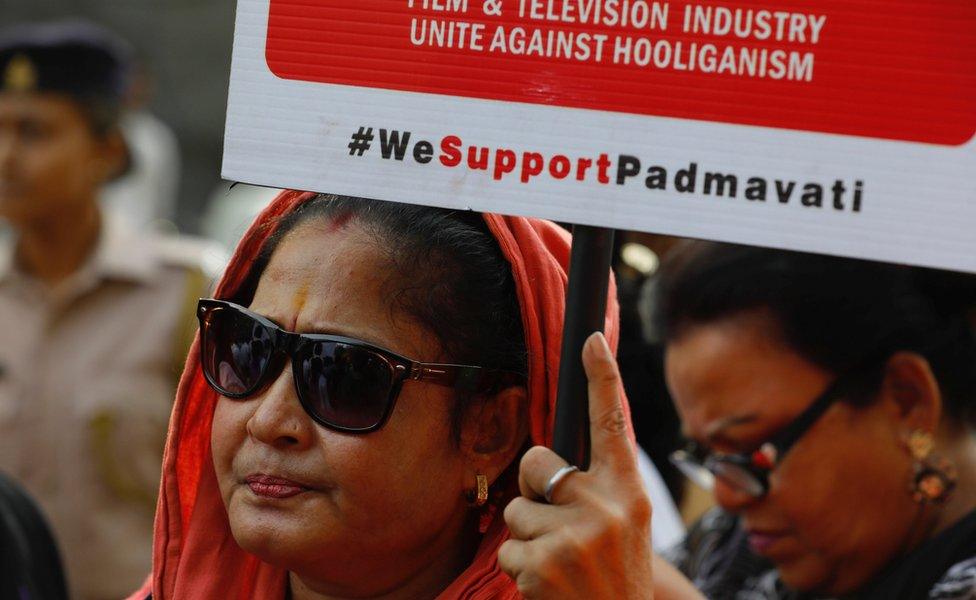
Demonstrations in support of the film have also taken place
Rumours about a scene in the film of the Muslim king dreaming of a romantic tryst with the Hindu queen have enraged many, including the Rajput Karnik Sena, a fringe caste group that has called for the film to be banned.
The group had disrupted shooting and one member had slapped Bhansali on the set earlier this year. Others vandalised cinemas and threatened to chop off Padukone's nose, referring to an incident in another epic, Ramayana, where a character has her nose cut off as punishment.
The group also held protests against the film in several states and Rajput community members have burned effigies of Bhansali.
- Published28 November 2017
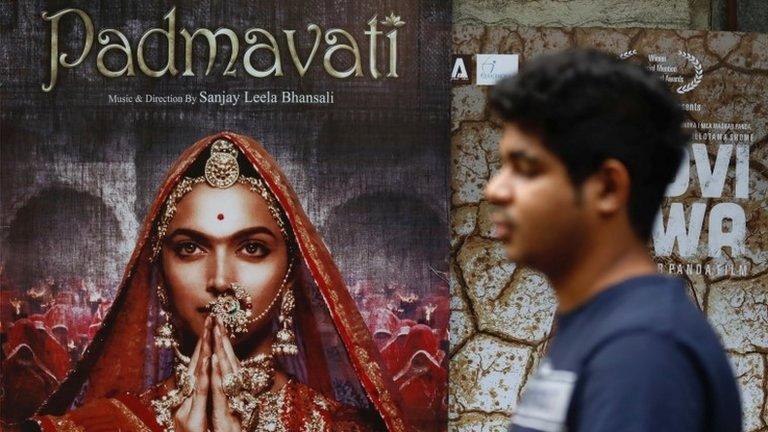
- Published25 January 2018
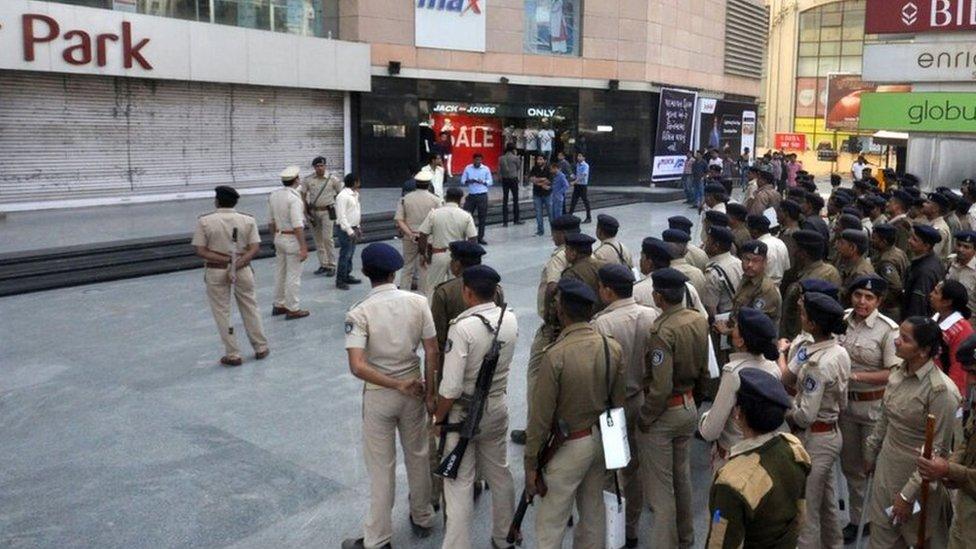
- Published16 October 2017
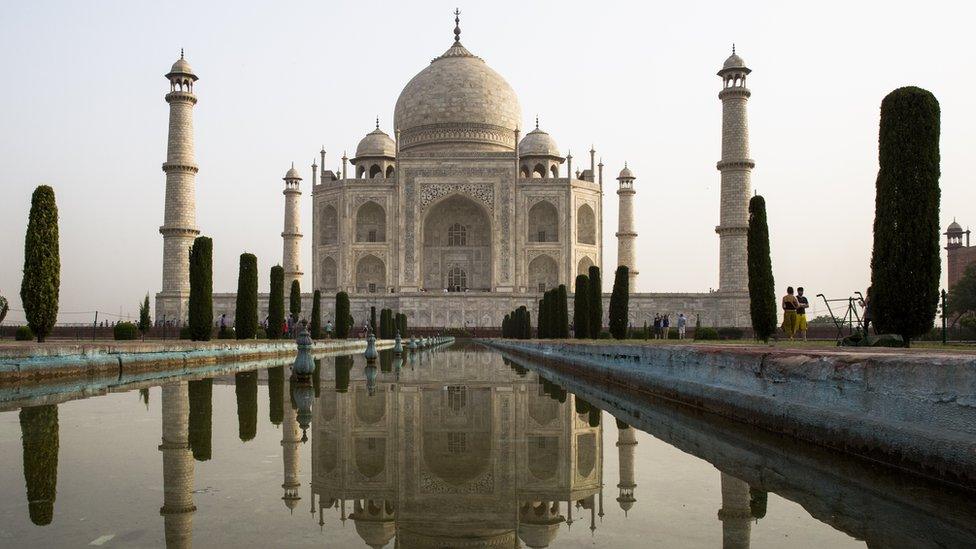
- Published28 June 2017
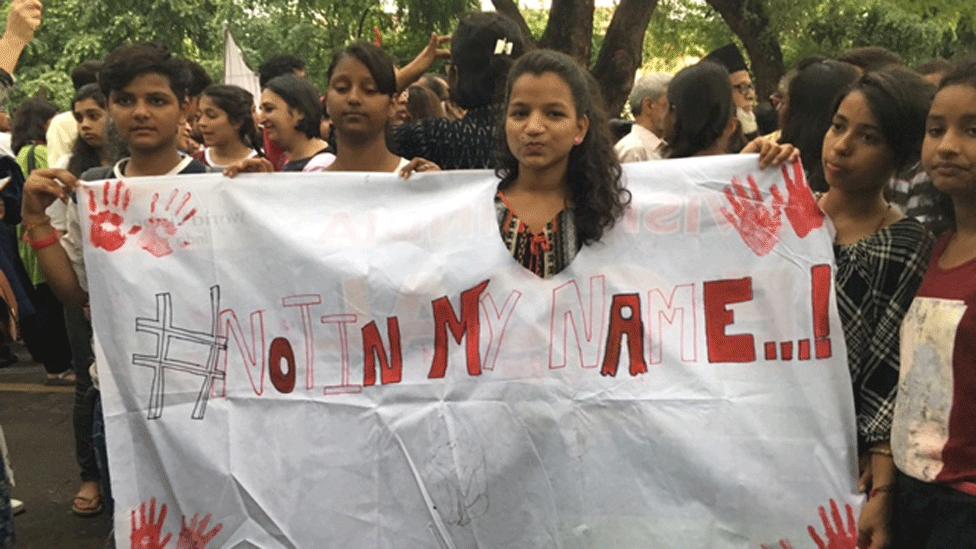
- Published30 January 2017
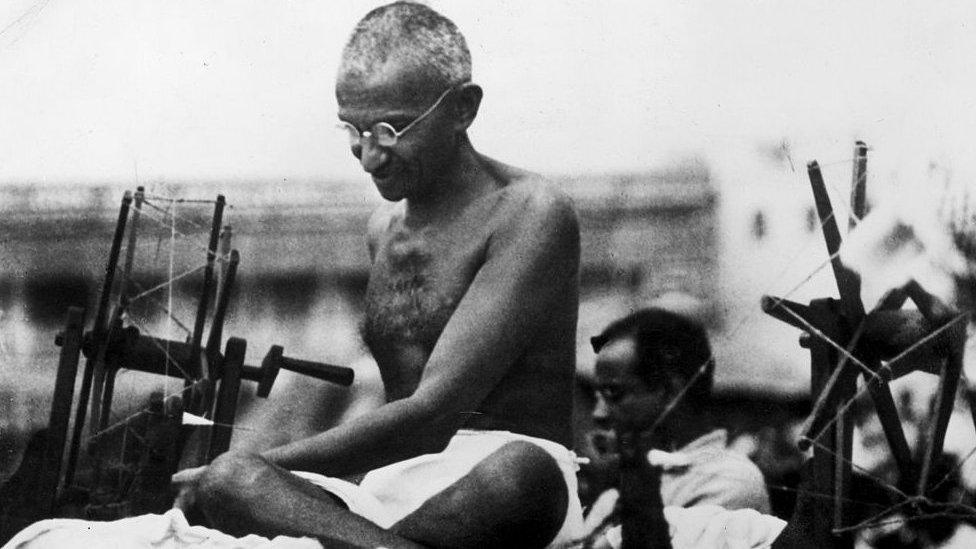
- Published26 June 2017
- Published29 October 2017
